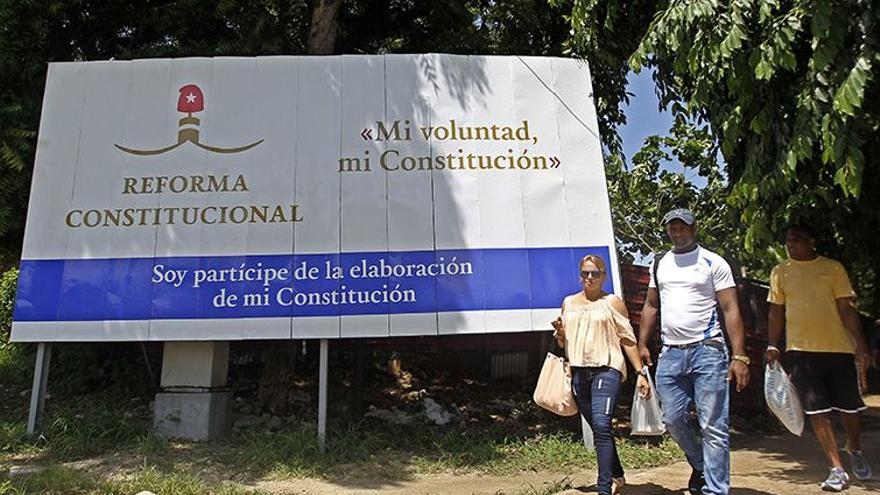
![]() 14ymedio, Reinaldo Escobar, Desde Aqui, Havana, 25 December 2018 — With the blessing of the docile Cuban parliament, the question that will appear on the February 24th referendum ballot will be the following: Do you ratify the new Constitution of the Republic?
14ymedio, Reinaldo Escobar, Desde Aqui, Havana, 25 December 2018 — With the blessing of the docile Cuban parliament, the question that will appear on the February 24th referendum ballot will be the following: Do you ratify the new Constitution of the Republic?
From the strictly legal point of view, the choice of the verb “ratify” is correct because in Article 162 of the current Electoral Law, it states that in referendums “citizens with electoral rights express whether or not they ratify the legal projects of Constitutional Reform…”
It is also based on ‘ratification’ appearing as a synonym of ‘approving’ in the thesaurus. However, beyond the definitions given by the Academy, words are marked by the use made of them.
We ratify a promise or commitment that we made earlier. A sentence that has been appealed is ratified, as is a treaty — commercial or otherwise — that already exists. So when the voters face this question in the privacy of the cubicle where they will vote, they will have a diminished assessment of the importance of their vote.
The Constitution of the Republic has already been approved by the National Assembly of People’s Power and now voters must “only” endorse that approval.
So far no authority, nor any legal article, has made clear what percentage of acceptance or ratification must be obtained for a proposal submitted to a referendum for the results to be binding. It could be that it is fifty percent plus one, or it could be claimed that two-thirds of the votes are required to determine acceptance of the matter on which voters have been consulted.
Nobody has explained what will happen if the majority of the electors decide to mark a civilized and peaceful X in the NO square. Will it be necessary to call a Constituent Assembly to write a new text? Will the already obsolete Constitution of 1976 maintain its validity?
Obviously the promoters of this new Constitution don’t even want to think about the remotest possibility of losing the referendum. The only sign that they do not feel safe is that the campaign for YES has already begun.
The next step, which is likely to take place after the final text has been published, will be the placement of billboards on public roads — some have already appeared — and the presence of messages in the media calling for an affirmative vote. It has been leaked that they will be mainly neutral texts, calling for a Yes for Cuba, a Yes for the future, or a Yes for children’s smiles. There will be nothing about a Yes for communism or something similar.
What seems unlikely is that the Government will accept that a campaign for the NO vote will enjoy the deserved equality of conditions.
It is said that opportunity only knocks once and if you don’t answer, it passes you by. The opportunity that we Cubans will have on February 24, to let those who hold power know that we are not willing to continue helping or supporting them is unique and unrepeatable.
This opportunity is not only going to knock just once, it’s going to pass at a run to make sure no one has time to get to the door.
__________________________
The 14ymedio team is committed to serious journalism that reflects the reality of deep Cuba. Thank you for joining us on this long road. We invite you to continue supporting us, but this time by becoming a member of 14ymedio. Together we can continue to transform journalism in Cuba.
